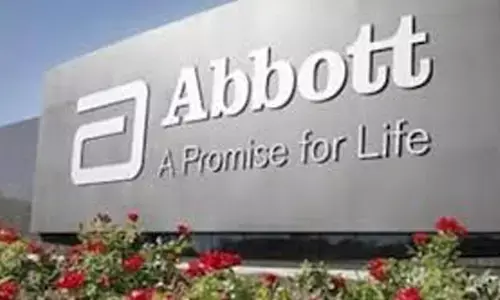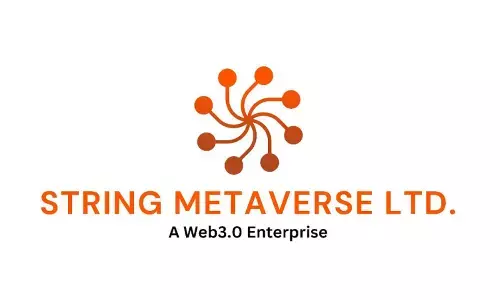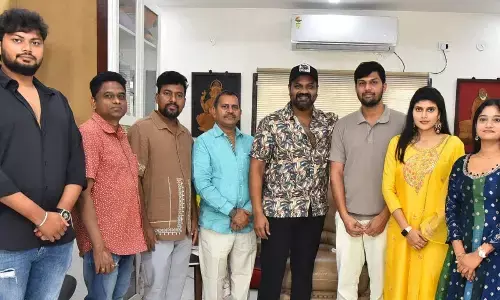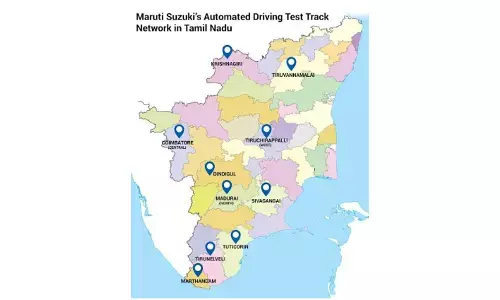The dilemmas of virtual governance and policy makers
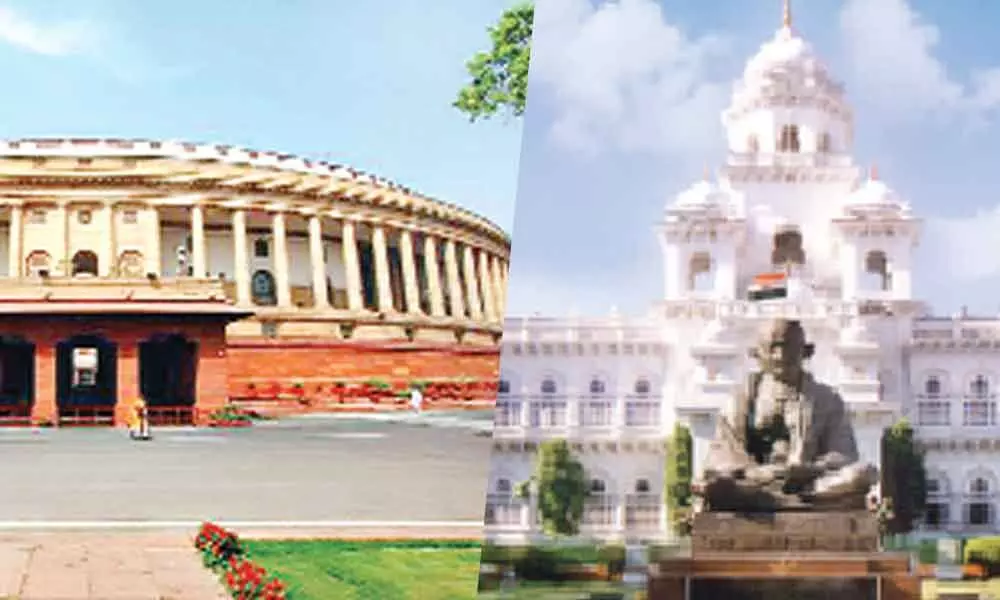
A lot has been written about how Indians need to live with the pandemic called Corona virus and yet move on in life
A lot has been written about how Indians need to live with the pandemic called Corona virus and yet move on in life. After nearly a 60-day lockdown, the central and State governments have now practically lifted lockdown and curfew rules.
The few restrictions are being freely violated true to our nature.
The centre and State governments too have once again started focussing attention on governance. But then the biggest problem before them is how to conduct the proceedings of the Parliament and State Assemblies.
The biggest problem is to follow social distancing protocols to prevent spread of Covid-19. Parliament and Assembly proceedings cannot go very hi-tech as physical presence and use of lung power is important.
While the Parliament is making a serious exercise on how to combat this problem, the State governments including Telangana and Andhra Pradesh do not seem to have focussed any attention on this issue.
Perhaps the ruling parties in both States may be thinking that further delaying holding of session may be advantageous for them politically.
As far as the two houses of Parliament - Lok Sabha and Rajya Sabha - are concerned, they have couple of options available for them. They can hold the session on alternate days. They have a massive Central Hall which can accommodate 776 members.
Hence maintaining social distance if the sessions are held on alternative days is not much of a problem. Even putting into place various safety measures including regular checking of temperature of officials and MPs through hand-held devices can also be done easily.
Some of the proposals under consideration are to see that at least 60 per cent of the parking space is kept free by using e cars to ferry the members.
As in many other workplaces, increased use of digital technology offers Parliament ways of continuing to operate while meeting all the Covid protocols.
One of the ways to make Parliament ready for the future session is to go in for a virtual one. The MPs may be allowed to watch the proceedings live and participate in the discussion online. The government is looking to develop a software to help them in remote attendance.
The Government and the presiding officers of both the houses are examining the path of House of Commons in UK which held its virtual session in April. Under virtual session, the number of MPs physically present in the UK house is a bare minimum, as majority attended from their homes.
While it may not be difficult to make the Parliament or state Assembly ready to go virtual technically using digital technology, the fact remains that it is not infallible. Each house has hundreds of members who might wish to participate in any particular session.
Parliament or State legislature going digital will have its own drawbacks particularly in a democratic country like India. May be it could be experimented for a session or two but this cannot be a permanent solution.
For example in virtual Parliament or Assembly questions would have to straightforward. The members will have to think twice before tabling them. The presiding officers might ask them to table only urgent questions and table other questions in writing.
But the members would feel that anything pertaining to their constituents' interests is urgent for them.
If their questions are given written replies, they would lose the opportunity to represent the problems pertaining to their constituencies effectively.
It would also rob them of an opportunity to seek direct clarifications from the government. Statements, 'urgent questions' and debates could lose spontaneity.
Passing legislations through virtual sessions will be a difficult task. The members need to discuss it thoroughly before it is passed.
In case of physical sessions, even if a bill has legal flaws it can be challenged and even introduction of it can be prevented. But in virtual session all that would become a complicated matter. MPs or MLAs need to be able to hold ministers to account for the decisions they are making on behalf of citizens.
Crucially, any legislature needs to be seen by the public to be doing these things – so the need for parliamentary proceedings to be broadcast live wherever possible and recorded accurately for posterity is more important than ever.
Hence at least in Indian context, virtual Parliament and Assembly sessions may not be suitable and the country certainly is not prepared for such technological revolution in governance.
As the time for monsoon session for Parliament and State Assemblies is approaching, its time a way out is found to hold physical sessions while maintaining the health protocols.
While maintaining social distance is one issue, there are many other aspects that need to be examined.
The canteens offering subsidised food, snacks and tea or coffee would be a thing of past and maybe we will now see the honourable members carrying their own lunch boxes. It would also be nice to see them use official transport which could be buses with limited passengers ferrying them to the Parliament of legislatures and back.
This was a practice about 15 years back. Majority of the members then used to make use of the official transport and there never used to be problems of parking nor were hundreds of security personnel seen anywhere.
But times changed fast and each member is now seen entering the Parliament or assembly with huge SUVs or MUVs followed by security vehicles leading to crowding in parking places.
Even pollution levels used to be very low. Hopefully, the positive side of Corona could be taking us back to our old practice of using official transport.
At a recent meeting with senior officials, Lok Sabha Speaker Om Birla asked for a review of the current car usage policy, according to people familiar with the development.
Apart from the Lok Sabha secretariat, the government-run India Tourism Development Corporation (ITDC) and Energy Efficiency Services Limited (EESL) provide cars in Parliament to ferry members. During the session, after the adjournment of the House, electric cars may be deployed for dropping off members.
The use of electric cars has been on the agenda of Parliament officials for a while. Two years ago, a couple of golf carts were purchased to commute within the Parliament estate.
During Sumitra Mahajan's tenure as Speaker (2009-14), a battery-operated minibus was also bought for MPs, but it was only of limited utility because it is unsuitable for narrow lanes.
It now remains to be seen how the two Telugu states would plan to conduct the Assembly session. If the grapevine is to believed, they would like to postpone holding of the monsoon session till September.



